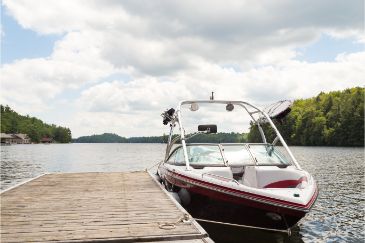Accidents on the water can be devastating, leading to injuries, property damage, and even loss of life. When such accidents occur in Atlanta, Georgia, determining negligence becomes crucial in seeking legal recourse and compensation for the victims. Negligence in boat accident cases involves establishing that someone failed to exercise reasonable care, resulting in harm to others. In the context of maritime law, negligence is a complex legal concept that requires thorough examination and understanding. Here, we delve into the key factors involved in determining negligence in Atlanta boat accident cases.
Duty of Care
Central to establishing negligence is the concept of duty of care. This refers to the legal obligation of individuals to act reasonably and prudently to prevent foreseeable harm to others. In the context of boat accidents, operators and owners have a duty to operate vessels safely, adhere to navigational rules, maintain proper lookout, and ensure the safety of passengers and other waterway users. Failure to fulfill this duty can constitute negligence.
Breach of Duty
A breach of duty occurs when someone fails to uphold the standard of care expected in a given situation. In the context of a boat accident, this could involve reckless operation, operating under the influence of alcohol or drugs, ignoring weather conditions, or failing to maintain the vessel properly. Proving a breach of duty often requires gathering evidence such as witness statements, accident reconstruction reports, and regulatory violations.
Causation
Causation establishes the link between the defendant’s breach of duty and the plaintiff’s injuries or damages. In other words, it must be shown that the negligent actions directly resulted in the harm suffered by the victim. This element may involve demonstrating how the defendant’s actions were a substantial factor in causing the accident and the resulting injuries.
Foreseeability
Foreseeability plays a crucial role in determining negligence by assessing whether the harm that occurred was reasonably foreseeable based on the defendant’s actions or inactions. In boat accident cases, foreseeability may involve evaluating factors such as the speed of the vessel, the presence of hazards in the waterway, and the likelihood of collisions given the surrounding circumstances.
Comparative Negligence
Georgia follows a modified comparative negligence rule, which means that a plaintiff’s recovery may be reduced if they are found partially at fault for the accident. In boat accident cases, this could occur if the plaintiff contributed to the accident by failing to wear a life jacket, engaging in reckless behavior, or violating boating regulations. Understanding how comparative negligence applies is essential for assessing potential legal liability.
Legal Representation
Navigating the complexities of negligence law in boat accident cases requires the experience of experienced legal professionals. Attorneys with a deep understanding of maritime law and Georgia’s legal framework can provide invaluable guidance and advocacy for victims seeking compensation for their injuries and losses. From conducting thorough investigations to negotiating with insurance companies and litigating in court, experienced attorneys play a vital role in pursuing justice for those harmed in boat accidents.
Preventing Boat Accidents in Atlanta
While understanding how negligence factors into boat accidents is essential for legal proceedings, preventing such accidents altogether is paramount. Atlanta, Georgia, offers abundant opportunities for recreational boating, but safety should always be a top priority. Here are some tips to help minimize the risk of boat accidents:
Obtain Proper Training
Before operating a boat, individuals should undergo thorough training to familiarize themselves with boating laws, navigation rules, and safety protocols. Many organizations offer boating safety courses that cover essential topics such as maneuvering techniques, emergency procedures, and the importance of wearing life jackets.
Maintain Vessel Maintenance
Regular maintenance and inspections are crucial for ensuring that boats are in proper working condition. This includes checking engines, steering systems, navigation lights, and safety equipment such as life jackets, fire extinguishers, and distress signals. Addressing any issues promptly can help prevent mechanical failures that could lead to accidents.
Follow Boating Regulations
Familiarize yourself with local boating regulations and adhere to speed limits, navigation rules, and designated no-wake zones. Avoid reckless behavior such as speeding, weaving through traffic, or operating a boat under the influence of alcohol or drugs. Responsible boating helps maintain order and safety on the water.
Stay Alert and Vigilant
Always maintain a proper lookout while operating a boat, scanning the water for potential hazards, other vessels, and swimmers. Be aware of changing weather conditions and adjust your speed and course accordingly to avoid collisions or capsizing. Additionally, designate a sober individual to serve as a lookout if necessary.
In Atlanta, boat accidents can have serious consequences for those involved. Determining negligence in such cases involves analyzing various factors, including duty of care, breach of duty, causation, foreseeability, and comparative negligence. Seeking legal representation from knowledgeable attorneys is crucial for navigating the complexities of negligence law and advocating for fair compensation. If you or a loved one has been injured in a boat accident, don’t hesitate to reach out to The Gunnels Law Firm LLC for experienced legal guidance and support.
